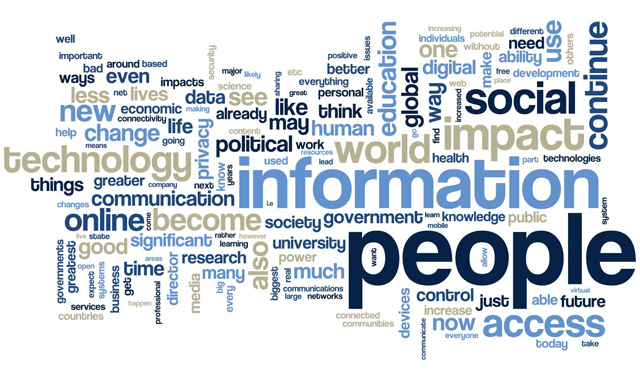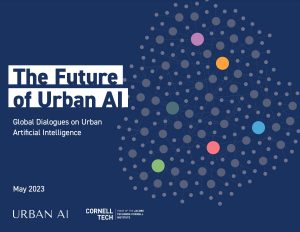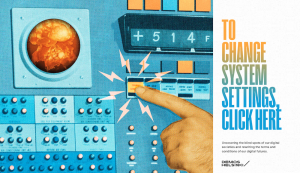Pew Internet research: 15 theses about the digital future in 2025

A canvassing of 2,558 experts and technology builders about where we will stand by the year 2025 finds striking patterns in their predictions, reports the Pew Research Center’s Internet Project.
In their responses, these experts foresee an ambient information environment where accessing the Internet will be effortless and most people will tap into it so easily it will flow through their lives “like electricity.†They predict mobile, wearable, and embedded computing will be tied together in the Internet of Things, allowing people and their surroundings to tap into artificial intelligence-enhanced cloud-based information storage and sharing.
These experts expect existing positive and negative trends to extend and expand in the next decade, revolutionizing most human interaction, especially affecting health, education, work, politics, economics, and entertainment. Most say they believe the results of that connectivity will be primarily positive. However, when asked to describe the good and bad aspects of the future they foresee, many of the experts can also clearly identify areas of concern, some of them extremely threatening. Heightened concerns over interpersonal ethics, surveillance, terror, and crime, may lead societies to question how best to establish security and trust while retaining civil liberties.
More-hopeful theses
- Information sharing over the Internet will be so effortlessly interwoven into daily life that it will become invisible, flowing like electricity, often through machine intermediaries.
- The spread of the Internet will enhance global connectivity that fosters more planetary relationships and less ignorance.
- The Internet of Things, artificial intelligence, and big data will make people more aware of their world and their own behavior.
- Augmented reality and wearable devices will be implemented to monitor and give quick feedback on daily life, especially tied to personal health.
- Political awareness and action will be facilitated and more peaceful change and public uprisings like the Arab Spring will emerge.
- The spread of the ‘Ubernet’ will diminish the meaning of borders, and new ‘nations’ of those with shared interests may emerge and exist beyond the capacity of current nation-states to control.
- The Internet will become ‘the Internets’ as access, systems, and principles are renegotiated.
- An Internet-enabled revolution in education will spread more opportunities, with less money spent on real estate and teachers.
Less-hopeful theses
- Dangerous divides between haves and have-nots may expand, resulting in resentment and possible violence.
- Abuses and abusers will ‘evolve and scale.’ Human nature isn’t changing; there’s laziness, bullying, stalking, stupidity, pornography, dirty tricks, crime, and those who practice them have new capacity to make life miserable for others.
- Pressured by these changes, governments and corporations will try to assert power — and at times succeed — as they invoke security and cultural norms.
- People will continue — sometimes grudgingly — to make tradeoffs favoring convenience and perceived immediate gains over privacy; and privacy will be something only the upscale will enjoy.
- Humans and their current organizations may not respond quickly enough to challenges presented by complex networks.
- Most people are not yet noticing the profound changes today’s communications networks are already bringing about; these networks will be even more disruptive in the future.
Advice: Make good choices today
- Foresight and accurate predictions can make a difference; ‘The best way to predict the future is to invent it.’



